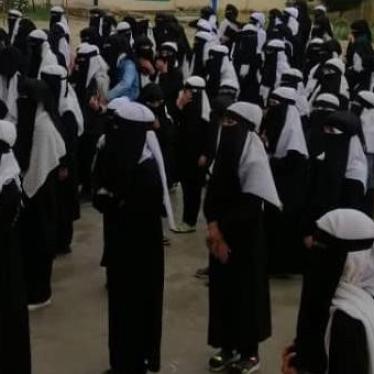Update - Since Human Rights Watch published the below news release, the International Olympic Committee (IOC) issued a statement in which it said it had “always encouraged the Beijing 2008 organisers to provide media with the fullest access possible to report on the Olympic Games, including access to the internet.” The IOC called on BOCOG to “keep their promise” to address the internet access problems experienced this week at the Olympic Games Main Press Centre in Beijing.
(New York) - The International Olympic Committee’s (IOC) admission that it consented to Chinese government censorship of certain websites ends the debate over whether the Olympics will promote rights in China, Human Rights Watch said today.
On July 30, 2008, IOC press commission chairman Kevan Gosper issued a public apology, admitting that IOC officials had agreed with the Chinese government’s plans to censor certain websites during the 2008 Games, despite the IOC’s pledges since 2001 that the media would have “full, open and free internet access during the Games.”
“Over the last year, Human Rights Watch has asked the IOC to forcefully intervene with the Chinese government to uphold ‘human dignity’ and ‘fundamental ethics,’ as the Olympic Charter stipulates,” said Sophie Richardson, Asia advocacy director at Human Rights Watch. “But now we know that not only did the IOC fail to do that, it actually helped perpetuate censorship, one of the most common abuses in China today.”
The Chinese government routinely restricts the internet content available to its citizens. Websites with content the Chinese government considers “sensitive,” including those of certain foreign media, have long been off-limits to Chinese citizens via official controls on domestic internet service providers. However, the Chinese government in 2001 promised the IOC that such controls would not apply to the internet access of foreign media and athletes at the 2008 Olympic Games in Beijing.
Foreign journalists uncovered the internet restrictions this week at the Beijing Olympics Main Press Center when attempting to access websites of foreign human rights organizations including Human Rights Watch, Amnesty International, Reporters Sans Frontières, the Committee to Protect Journalists, and Human Rights in China. Reporters were also unable to access the web pages of Tibetan and Uighur groups, as well as those of the Falun Gong, which the Chinese government has classified as an “evil cult,” including the sites of media outlets associated with the Falun Gong, such as New Tang Dynasty and the Epoch Times. One journalist told Human Rights Watch that although the US State Department’s website was not blocked, its annual human rights report on China would not open.
Human Rights Watch’s requests for clarification from the IOC over the past day have gone unanswered. In a January meeting with the IOC in Lausanne, Switzerland, and in correspondence since then, Human Rights Watch warned IOC officials about internet censorship in China.
Human Rights Watch called on the IOC to immediately:
- release details about all discussions or negotiations in which its officials agreed to tolerate the Chinese government's censorship;
- make public the still-confidential Host City Contract for the Beijing Games, which should contain provisions and information about contractual international media freedom guarantees;
- insist that the Chinese government provide unfettered internet access and monitor that access during the Games; and
- create a permanent human rights monitoring mechanism that could monitor future host city compliance with press freedom commitments.
“By enabling the Chinese government’s Olympic censorship, the IOC is setting a pernicious precedent for future Games,” said Richardson. “The IOC must take immediate steps to make public what Beijing promised and to fix this debacle.”
How to counter China’s censorship
Human Rights Watch directs journalists working inside China to use available technologies for circumventing government internet censorship and enhancing the security of their email communications.
These tools must be set up prior to arrival in mainland China: a Virtual Private Network which creates a “tunnel” between the user’s computer and a remote network (e.g., WiTopia Personal VPN); Tor software to help counter surveillance of visited websites; or Psiphon, an open source web proxy designed to help bypass content-filtering systems.







